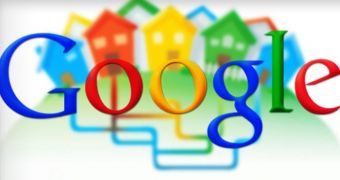Google has been one of the front-row supporters of net neutrality, even signing an open letter that the tech industry sent to the FCC earlier this month, hoping to convince the commission that the idea of allowing Internet Service Providers to create a fast lane for companies with deep pockets was a bad one.
Unlike other signatories on the list, however, Google has an extra title that may slip from your mind at first given the many areas where the company is an active player. Either way, for all intents and purposes, Google is an Internet Service Provider as well through Fiber.
Of course, the Google Fiber network is just starting to reach more and more places in the United States, but it’s clear that its service is far superior to other competitors, as far as both the broadband speeds provided and the price tags attached to the data packages are concerned.
While Comcast, Verizon, Time Warner Cable and others have all been lobbying to convince the FCC to let them create fast lanes and charge companies for access, Google is taking the opposite stance.
“Bringing fiber all the way to your home is only one piece of the puzzle. We also partner with content providers (like YouTube, Netflix, and Akamai) to make the rest of your video’s journey shorter and faster. (This doesn't involve any deals to prioritize their video ‘packets’ over others or otherwise discriminate among Internet traffic — we don't do that),” Google writes, perhaps trying to prove that it is indeed above competitors.
The company explains that just like other Internet providers, Google Fiber offers customers what is known as “last-mile” Internet. Since content providers already pay billions of dollars to build their own networks to transport the content to the “last-mile” connections, there sometimes can be speed issues.
“So that your video doesn’t get caught up in this possible congestion, we invite content providers to hook up their networks directly to ours. This is called ‘peering,’ and it gives you a more direct connection to the content that you want,” the company explains.
Since Netflix has been such a popular name when it comes to the fight for net neutrality in the United States, Google’s Jeffrey Burgan, director of network engineering, explains that they’ve already worked together to “collocate” Netflix equipment to the Fiber network. This means that Netflix has basically placed its own servers within Google’s facilities, which makes for a shorter travel time and higher quality.
It feels a bit like Google is trying to prove that it’s the “bigger man” in the entire net neutrality discussion, as it is one of the very few Internet service providers to be in favor of the notion. The company seems to be taking its role serious even though the network it built is still limited and it has a long way to go before it catches up with the competitors, if this ever happens.
Even so, the statement made by Comcast’s execs that they’re afraid of Google and Netflix doesn’t seem to be too far-fetched anymore. The idea came up during a hearing with a Congress committee that was looking into the proposed merger between Comcast and Time Warner Cable.

 14 DAY TRIAL //
14 DAY TRIAL //